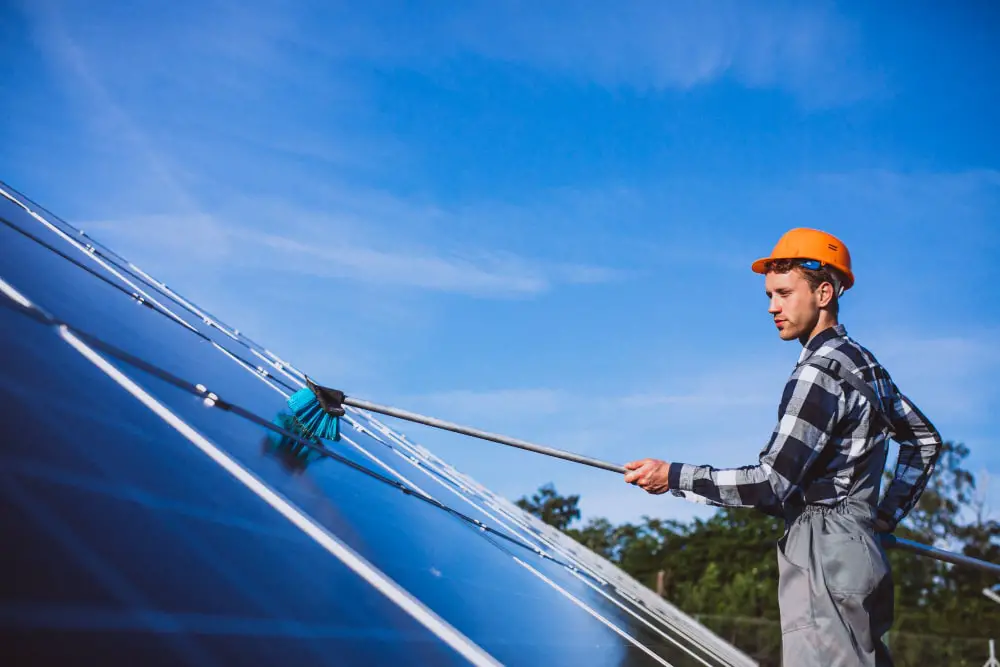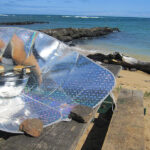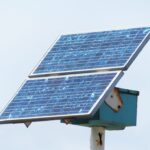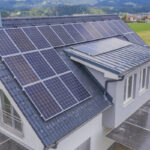Solar panels have become an increasingly popular and eco-friendly choice for generating electricity. However, over time, these panels can accumulate dust, dirt, and grime, which can significantly hinder their efficiency. Regular maintenance and cleaning are essential to ensure optimal performance and maximize energy output. When it comes to cleaning solar panels, there are numerous methods available, but one natural and cost-effective solution is cleaning with vinegar. In this blog, we will delve into the safety of using vinegar for solar panel cleaning, provide detailed instructions on how to use vinegar effectively and discuss the pros and cons of this cleaning method.
Is It Safe To Clean Solar Panels With Vinegar?
Before we delve into the details, it’s important to address the safety concerns associated with using vinegar. Vinegar is a non-toxic and environmentally friendly cleaning agent that poses minimal risk to both humans and the environment. It is a common household item utilized for various cleaning purposes due to its natural acidic properties. When diluted appropriately, vinegar can effectively remove dirt, grime, and mineral deposits from solar panels without causing any damage or leaving behind harmful residues. This makes vinegar a safe and reliable option for DIY cleaning solar panels.
How To Use Vinegar to Clean Solar Panels
- Gather the necessary tools: Begin by gathering the tools you’ll need for the cleaning process. These include a soft-bristle brush, a bucket, a hose with a spray nozzle, and white distilled vinegar.
- Prepare the cleaning solution: Dilute the vinegar with water in a ratio of 1:1 (equal parts vinegar and water). Avoid using undiluted vinegar, as its high acidity may harm the panels.
- Wet the solar panels: Use the hose to thoroughly wet the solar panels. This step helps loosen any loose dirt or debris present on the surface.
- Apply the vinegar solution: Dip the soft-bristle brush into the diluted vinegar solution and gently scrub the surface of the solar panels. Ensure that you cover the entire surface area, paying particular attention to any stubborn stains or residue.
- Rinse with water: Once you have scrubbed the panels, use the hose to rinse away the vinegar solution and any loosened dirt. It is important to remove all traces of vinegar from the panels to prevent any potential negative effects.
- Let them dry: Allow the solar panels to air dry naturally or use a soft, lint-free cloth to gently pat them dry.
The Pros and Cons of Using Vinegar to Clean Solar Panels
Pros:
- Cost-effective: One of the primary advantages of using vinegar to clean solar panels is its affordability. Vinegar is readily available at a low cost compared to commercial solar panel cleaners.
- Environmentally friendly: Vinegar is a natural and non-toxic cleaning agent, making it an eco-friendly choice that does not harm the environment or contaminate groundwater. By opting for vinegar, you are reducing your ecological footprint.
- Effectiveness: Vinegar’s acidic properties help break down and dissolve stubborn dirt, grime, and mineral deposits, effectively restoring the efficiency of solar panels. It is particularly useful in removing water spots caused by minerals present in hard water.
- Versatility: Vinegar can be easily found in most households, making it a convenient cleaning solution for regular maintenance. Its versatility allows you to use it not only on solar panels but also on various other surfaces around the house.
Cons:
- Limited effectiveness on certain stains: While vinegar is effective for general cleaning, it may not completely remove stubborn stains such as bird droppings or tree sap. In such cases, you may need to consider alternative cleaning methods or seek professional assistance.
- Potential for damage with incorrect use: It is essential to follow the recommended dilution ratio and use gentle cleaning techniques when using vinegar. Using undiluted vinegar or harsh scrubbing techniques can potentially damage the protective coating of solar panels, affecting their performance. Therefore, caution should be exercised during the cleaning process.
Conclusion
Regularly cleaning solar panels is vital for maintaining their efficiency and prolonging their lifespan. Vinegar offers a safe, affordable, and environmentally friendly solution for removing dirt and grime from solar panels. By following the proper dilution and cleaning techniques outlined above, you can effectively clean your solar panels without causing any damage. However, it’s important to note that vinegar may not be suitable for removing all types of stains. In such cases, alternative methods or professional assistance may be required. Embracing vinegar as a cleaning solution for your solar panels can contribute to their optimal performance and your overall environmental consciousness.


















